When you finish writing a message, letter, or email, the word “Sincerely” is often used to show respect, warmth, and care. But sometimes, you might want to express yourself in a way that feels more personal, heartfelt, or meaningful. Finding the right alternative to “Sincerely” can help your message sound authentic and genuine, especially when you want to connect on a deeper level—whether it’s in a professional email, thank-you note, or personal message.
Below, you’ll discover 20 thoughtful alternatives to “Sincerely”, complete with meanings, tone, examples, and when to use them.
What Does “Sincerely” Mean?
The word “Sincerely” means “genuinely,” “honestly,” or “with real feelings.” It shows that your message is truthful and respectful, especially when ending a letter or email. When you write “Sincerely,” you’re letting the reader know that your words come from a place of honesty and kindness.
Is It Professional/Polite to Say “Sincerely”?
Yes, saying “Sincerely” is both professional and polite. It’s one of the most commonly accepted closings in formal communication, especially in business, education, or job applications. However, in personal messages, using something warmer or more creative can make your message feel more heartfelt and human.
Other to Say “Sincerely”
- Best Regards
- Kind Regards
- Warm Regards
- Yours Truly
- Respectfully
- With Appreciation
- With Gratitude
- Warm Wishes
- Take Care
- All the Best
- Cordially
- Faithfully
- Yours Faithfully
- Yours Always
- Yours Kindly
- With Best Wishes
- Heartfelt Regards
- Appreciatively
- Yours Warmly
- Respectfully Yours
1. Best Regards
Meaning: A polite and professional way to close a message while keeping it friendly.
Scenario: Great for emails, business letters, and polite exchanges with coworkers or clients.
Examples:
- Best regards, thank you for your quick response to my request.
- I appreciate your help with this matter. Best regards.
- Looking forward to hearing from you soon. Best regards.
- Please find the attached document. Best regards.
- Wishing you a productive week ahead. Best regards.
Tone: Professional, courteous, and respectful.
Explanation: This is one of the most widely used alternatives to “Sincerely,” offering a balance of warmth and professionalism that fits almost any formal communication style.
2. Kind Regards
Meaning: A polite and slightly warmer version of “Best regards.”
Scenario: Ideal for emails where you want to sound friendly yet respectful.
Examples:
- Thank you for your support during this project. Kind regards.
- I look forward to collaborating again soon. Kind regards.
- It was great working with you on this task. Kind regards.
- Please let me know your thoughts when you have a moment. Kind regards.
- I hope you’re doing well. Kind regards.
Tone: Friendly, respectful, and polished.
Explanation: “Kind regards” adds a touch of warmth and sincerity that works beautifully in both personal and professional contexts.
3. Warm Regards
Meaning: Expresses friendliness and heartfelt appreciation.
Scenario: Suitable for colleagues, clients, or friends you have a close relationship with.
Examples:
- Thank you for your continued support. Warm regards.
- I truly appreciate your time and help. Warm regards.
- It was a pleasure meeting you last week. Warm regards.
- I’m wishing you all the best moving forward. Warm regards.
- Let’s stay in touch. Warm regards.
Tone: Warm, kind, and appreciative.
Explanation: This phrase adds emotional warmth to your message, showing that your communication comes from a place of genuine appreciation.
4. Yours Truly
Meaning: A traditional way of showing respect and authenticity.
Scenario: Often used in formal letters or messages to express honesty and good intentions.
Examples:
- Thank you for your thoughtful response. Yours truly.
- It was wonderful meeting you at the event. Yours truly.
- I appreciate your time and attention. Yours truly.
- I’m grateful for your help with this project. Yours truly.
- Hope to hear from you soon. Yours truly.
Tone: Respectful, classic, and heartfelt.
Explanation: A timeless choice that communicates genuine respect and courtesy in both formal and personal correspondence.
5. Respectfully
Meaning: Shows deep respect and humility toward the recipient.
Scenario: Perfect for addressing higher authorities, professors, or officials.
Examples:
- Thank you for considering my request. Respectfully.
- I appreciate your time and guidance. Respectfully.
- I look forward to your valuable feedback. Respectfully.
- Thank you for your leadership. Respectfully.
- Please accept my gratitude. Respectfully.
Tone: Formal, polite, and sincere.
Explanation: This closing is best when you need to maintain professionalism and deference, especially in official communications.
6. With Appreciation
Meaning: Expresses gratitude and sincere thanks.
Scenario: Great when you want to show genuine appreciation.
Examples:
- Thank you for your hard work on this project. With appreciation.
- I truly value your insights. With appreciation.
- Your help made a big difference. With appreciation.
- I’m grateful for your continued support. With appreciation.
- Thanks again for your time. With appreciation.
Tone: Grateful and warm.
Explanation: This phrase adds a touch of genuine gratitude that leaves a lasting positive impression.
7. With Gratitude
Meaning: A heartfelt way to show thankfulness.
Scenario: Ideal for expressing deep appreciation or emotion.
Examples:
- Thank you for your kindness. With gratitude.
- Your support means so much. With gratitude.
- I truly value our friendship. With gratitude.
- I appreciate everything you’ve done. With gratitude.
- I’m so thankful for your guidance. With gratitude.
Tone: Sincere and heartfelt.
Explanation: This expression highlights genuine emotion and deep thankfulness, making it perfect for heartfelt notes or personal emails.
8. Warm Wishes
Meaning: Conveys friendliness and good intentions.
Scenario: Great for personal letters or light professional exchanges.
Examples:
- Hope you’re doing well. Warm wishes.
- Sending positive thoughts your way. Warm wishes.
- Wishing you success in all you do. Warm wishes.
- Thank you for being such a wonderful teammate. Warm wishes.
- Hope your week goes smoothly. Warm wishes.
Tone: Friendly and genuine.
Explanation: Adds personal warmth and feels natural when connecting with someone in a caring way.
9. Take Care
Meaning: Expresses care and good intentions for the reader’s well-being.
Scenario: Ideal for friendly or semi-formal emails.
Examples:
- I hope everything goes well with your project. Take care.
- Thanks again for your time today. Take care.
- Looking forward to hearing from you. Take care.
- Wishing you all the best in your next steps. Take care.
- Have a great rest of your week. Take care.
Tone: Friendly and caring.
Explanation: A simple yet thoughtful way to show care without being overly formal.
10. All the Best
Meaning: Expresses encouragement and goodwill.
Scenario: Great for wishing someone success or happiness.
Examples:
- I wish you the best with your new role. All the best.
- Thanks for your time and patience. All the best.
- I hope everything works out perfectly. All the best.
- Wishing you success and happiness. All the best.
- I appreciate your support. All the best.
Tone: Encouraging and kind.
Explanation: “All the best” sounds genuine and positive, making it perfect for closing friendly messages.
11. Cordially
Meaning: A polite and refined way to end a message that expresses warmth and respect.
Scenario: Ideal for formal letters, invitations, or polite business communication.
Examples:
- Thank you for your valuable time today. Cordially.
- I look forward to hearing from you soon. Cordially.
- Please accept my appreciation for your guidance. Cordially.
- It was a pleasure connecting with you at the meeting. Cordially.
- Wishing you continued success in your endeavors. Cordially.
Tone: Formal, gentle, and courteous.
Explanation: “Cordially” has a refined and respectful charm, making it perfect for situations where you want to maintain professionalism while still sounding kind and polished.
12. Faithfully
Meaning: A traditional sign-off that expresses loyalty and respect, often used in very formal writing.
Scenario: Commonly used in formal letters, especially when you don’t personally know the recipient.
Examples:
- Thank you for your attention to this matter. Faithfully.
- I appreciate your time and consideration. Faithfully.
- Please accept my gratitude for your help. Faithfully.
- I remain available for further discussion. Faithfully.
- Wishing you all the best in your work. Faithfully.
Tone: Traditional, formal, and respectful.
Explanation: This closing has a sense of dignity and sincerity, showing that you are earnest and genuine in your message. It’s perfect for formal letters and applications.
13. Yours Faithfully
Meaning: A phrase used to show trust, loyalty, and respect, often in business or official letters.
Scenario: Common in British English when the recipient’s name is unknown.
Examples:
- Thank you for reviewing my application. Yours faithfully.
- I appreciate your consideration of my request. Yours faithfully.
- I look forward to hearing from you soon. Yours faithfully.
- Please let me know if you need more details. Yours faithfully.
- Thank you for your time and understanding. Yours faithfully.
Tone: Polite and professional.
Explanation: “Yours faithfully” reflects trust and respect, often used in formal correspondence where the tone should remain official yet genuine.
14. Yours Always
Meaning: A warm and affectionate closing expressing closeness and lasting connection.
Scenario: Best for personal letters, emotional messages, or writing to someone you care deeply about.
Examples:
- Thank you for always being there for me. Yours always.
- I truly cherish our friendship. Yours always.
- You mean a lot to me. Yours always.
- I’ll always be grateful for your kindness. Yours always.
- Hope to see you soon. Yours always.
Tone: Emotional, personal, and heartfelt.
Explanation: This phrase conveys deep affection and sincerity, making it ideal for messages that are personal, emotional, or loving rather than formal.
15. Yours Kindly
Meaning: A polite and soft closing that shows kindness and respect.
Scenario: Appropriate for professional yet friendly emails.
Examples:
- Thank you for your cooperation. Yours kindly.
- I appreciate your time and help. Yours kindly.
- Looking forward to hearing from you soon. Yours kindly.
- I truly value your input on this. Yours kindly.
- Hope everything is going well for you. Yours kindly.
Tone: Polite, warm, and professional.
Explanation: “Yours kindly” feels gentle and courteous, offering the right amount of warmth without sounding too casual or emotional.
16. With Best Wishes
Meaning: A friendly and optimistic way to show good intentions and positivity.
Scenario: Perfect for friendly professional emails or personal correspondence.
Examples:
- Wishing you a successful week ahead. With best wishes.
- Thank you for your time and energy. With best wishes.
- I hope everything goes smoothly. With best wishes.
- It was wonderful working with you. With best wishes.
- Looking forward to our next collaboration. With best wishes.
Tone: Cheerful and positive.
Explanation: This closing adds a lighthearted yet respectful touch, suitable for friendly emails or notes where you want to end on an encouraging tone.
17. Heartfelt Regards
Meaning: Conveys deep sincerity and emotion from the heart.
Scenario: Great for messages of gratitude, sympathy, or appreciation.
Examples:
- Thank you for your kindness during this time. Heartfelt regards.
- I truly appreciate your compassion. Heartfelt regards.
- Your support has meant so much to me. Heartfelt regards.
- I’m so grateful for everything you’ve done. Heartfelt regards.
- Wishing you strength and peace. Heartfelt regards.
Tone: Emotional and genuine.
Explanation: This phrase communicates real emotion and sincerity, making it perfect when expressing care, sympathy, or gratitude in a personal or semi-formal way.
18. Appreciatively
Meaning: A professional yet heartfelt way to show genuine gratitude.
Scenario: Excellent for thank-you notes, work emails, and appreciation letters.
Examples:
- Thank you for your time and guidance. Appreciatively.
- I truly value your effort and expertise. Appreciatively.
- Your help made a big difference. Appreciatively.
- I’m grateful for your continued support. Appreciatively.
- It was a pleasure working with you. Appreciatively.
Tone: Professional, grateful, and genuine.
Explanation: “Appreciatively” adds professional gratitude without sounding overly emotional. It fits both business and friendly communication styles naturally.
19. Yours Warmly
Meaning: A tender and friendly way to close a message while remaining respectful.
Scenario: Perfect for friendly business emails or messages to someone you know well.
Examples:
- It was lovely catching up with you. Yours warmly.
- Thank you for your thoughtful message. Yours warmly.
- I hope your week is going well. Yours warmly.
- Let’s stay in touch. Yours warmly.
- Wishing you all the best. Yours warmly.
Tone: Friendly, kind, and personable.
Explanation: “Yours warmly” balances professionalism and friendliness, making it a versatile and heartfelt alternative to “Sincerely.”
20. Respectfully Yours
Meaning: A formal and polite way to close a message that shows deep respect.
Scenario: Common in official communication, applications, or letters to authority figures.
Examples:
- Thank you for your time and consideration. Respectfully yours.
- I appreciate your leadership and guidance. Respectfully yours.
- Please accept my gratitude for your support. Respectfully yours.
- Looking forward to your feedback. Respectfully yours.
- I remain grateful for your trust. Respectfully yours.
Tone: Formal, humble, and sincere.
Explanation: This phrase combines professional politeness and humility, making it ideal for official or serious communication where respect is essential.
Conclusion
The way you close a message isn’t just a simple formality—it’s your final opportunity to express emotion, gratitude, and sincerity. The phrase “Sincerely” may be timeless, but using different alternatives can help you sound more authentic, warm, and personal depending on your relationship with the reader.
Whether you choose “Kind regards” for professionalism, “With gratitude” for heartfelt thanks, or “Yours warmly” for friendliness, every word you select reflects your tone, respect, and personality.
So, when you send your next email, note, or letter, take a few extra seconds to choose a closing that feels true to you. Those final words might be short, but they can make a lasting impression that feels both human and sincere.
FAQs
1. What’s the most professional alternative to “Sincerely”?
“Best regards” and “Kind regards” are the most reliable professional options that sound polite and modern.
2. Which closing is best for thank-you messages?
“With appreciation” or “With gratitude” are perfect because they clearly express thankfulness.
3. Can I use “Take care” in a work email?
Yes, especially if you already have a friendly and respectful relationship with the person.
4. What’s a formal alternative to “Sincerely” for official letters?
“Respectfully” or “Yours faithfully” are excellent for formal and traditional communication.
5. What’s a warm but still professional way to close an email?
“Warm regards” or “Yours warmly” blend friendliness and professionalism beautifully.
Emma Brooke is a content writer at GrammerWay, specializing in English grammar, writing clarity, and common language errors. She creates easy-to-follow guides that help readers write accurately and confidently.
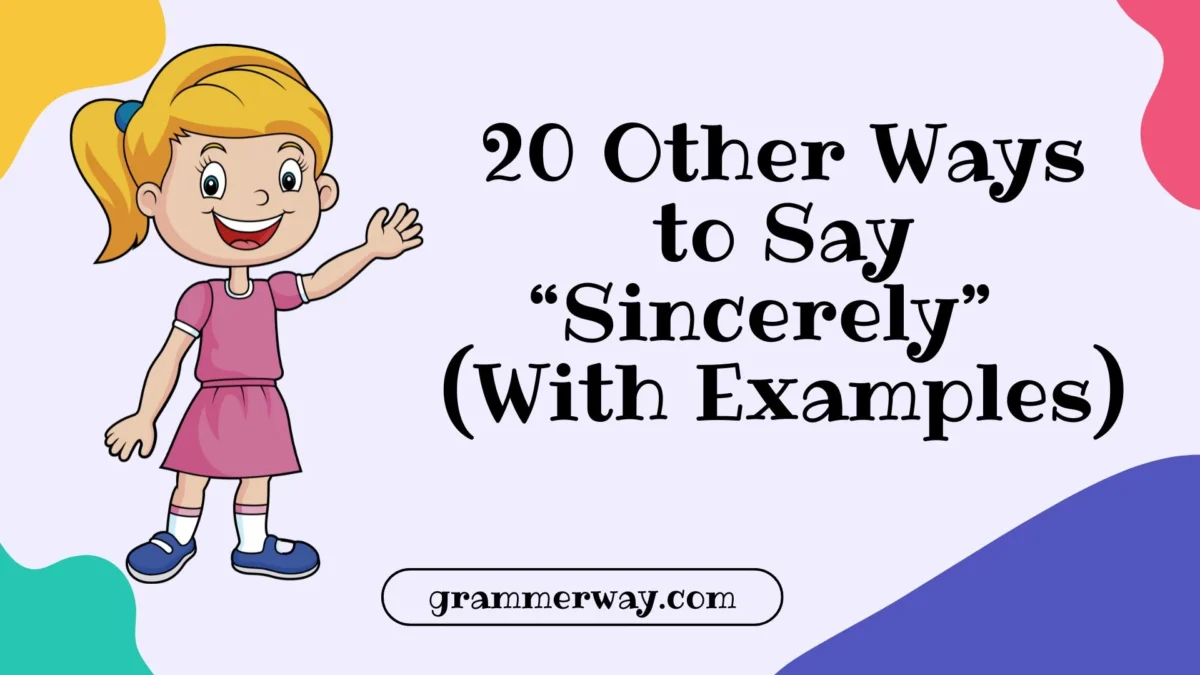
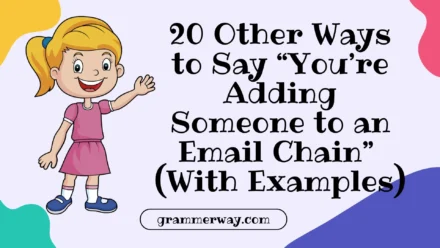
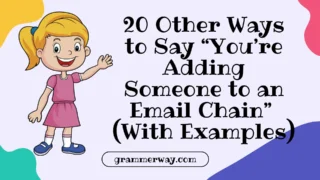
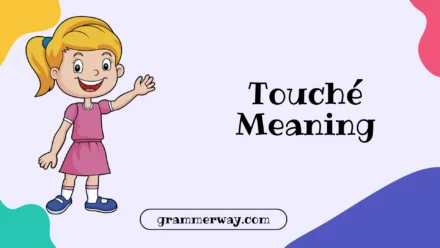
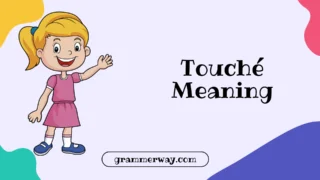
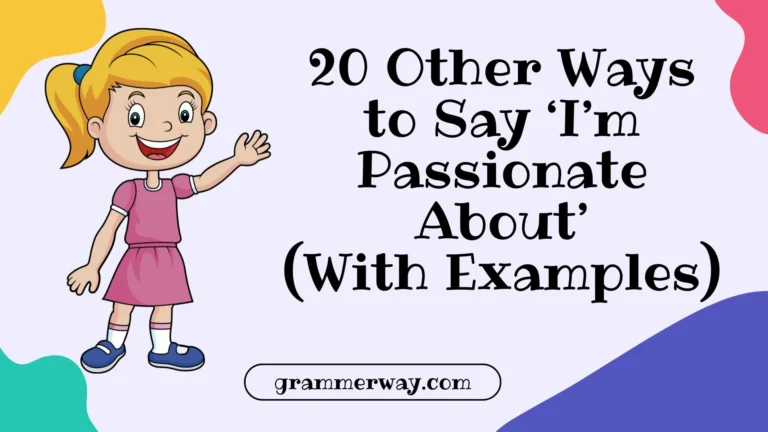
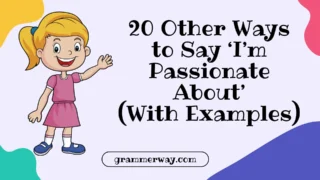
Leave a Comment